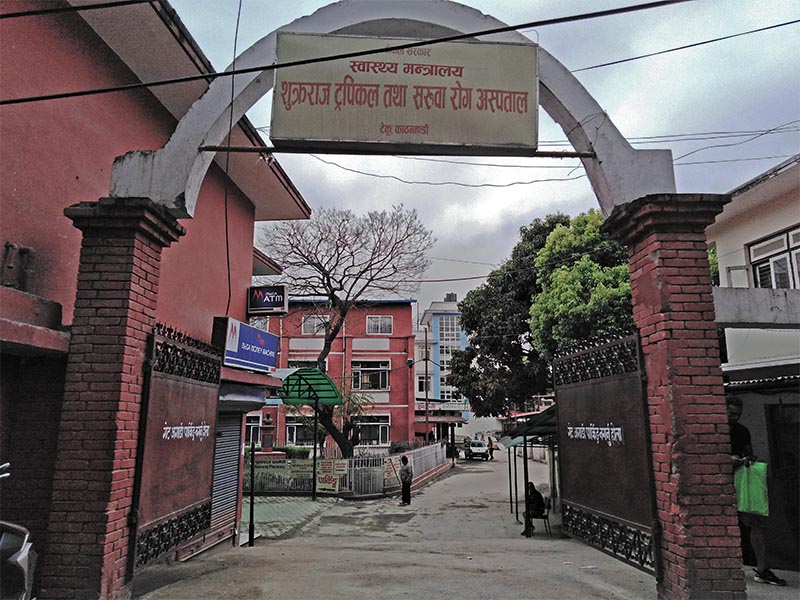Staffers of STIDH diagnosed with dengue
Kathmandu, August 19
Two staffers of Sukraraj Tropical and Infectious Disease Hospital, Teku, have been diagnosed with dengue.
The patients did not have a travel history to any dengue affected area, said Anup Bastola, spokesperson and consultant tropical medicine and physician at STIDH.
“This is an indigenous dengue case. When a local mosquito gets infected with the dengue virus and transmits infection to local people, it is called indigenous dengue,” he said.
Several dengue infected patients are receiving treatment at the hospital. The mosquitoes in the locality too are infected as there are dengue patients visiting the hospital for treatment. When an infected mosquito bites a healthy person the disease gets transmitted.
When the infected mosquito lays eggs, the eggs too get infected. There are high chances of more people suffering from the mosquito borne infection. “It has posed a high risk to hospital staffers, visitors and people living near Teku area,” said the doctor.
There are 11 dengue patients undergoing treatment in the hospital at present.
As per the Epidemiology and Disease Control Division, 11 cases of dengue have been reported in the capital so far this year. The cases are increasing.
“We have received information about two staffers suffering from dengue today,” said Bibek Kumar Lal, director at EDCD.
Kathmandu is at high risk of an outbreak. Dengue cases have already been reported from Kapurdhara, Baneshwor, Tinkune, Saibu, Imadol, Harisiddhi and other areas, said Uttam Raj Pyakurel, vector control inspector at EDCD.
EDCD, therefore, has decided to launch a community awareness programme in the capital as dengue cases have been reported across the country. There are over 4,300 dengue cases in 43 districts of the country, according to EDCD.
The EDCD has also requested all the bodies concerned not to use rapid diagnostic test kit to test every case of fever.
“Use the rapid diagnostic kit only on those who have been suffering from fever for at least three days, have a white blood cell count lower than 4,000 cells/cubic millimetre and have platelet count lower than 100,000 per microlitre, said Lal.






